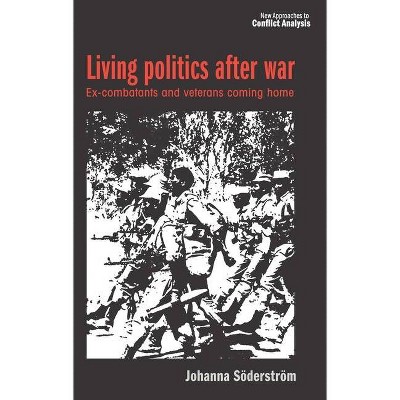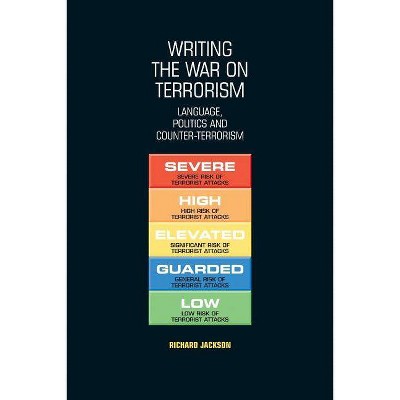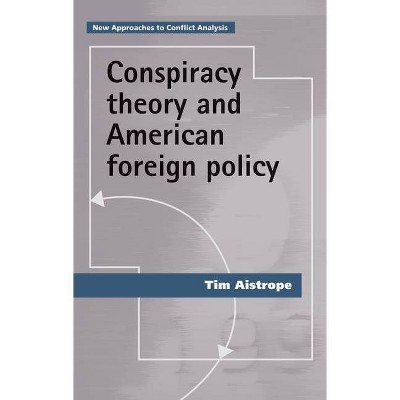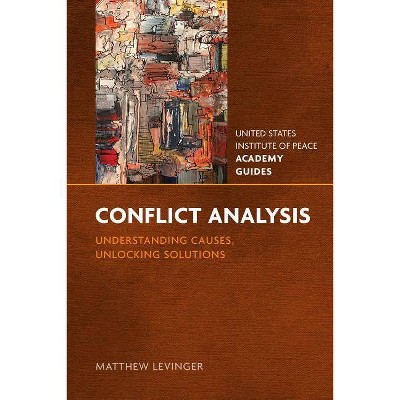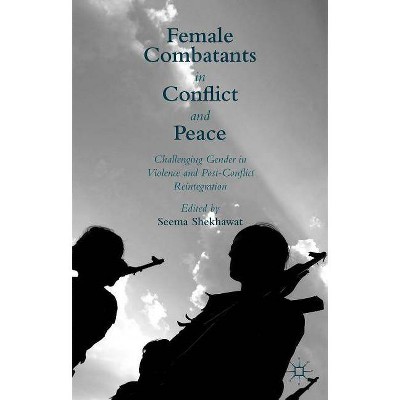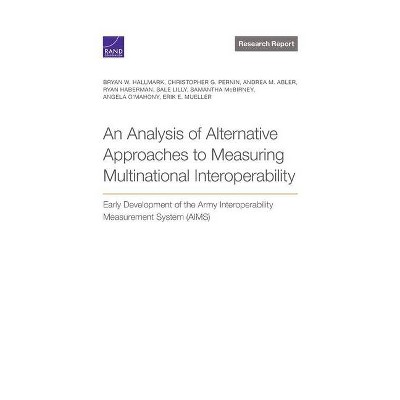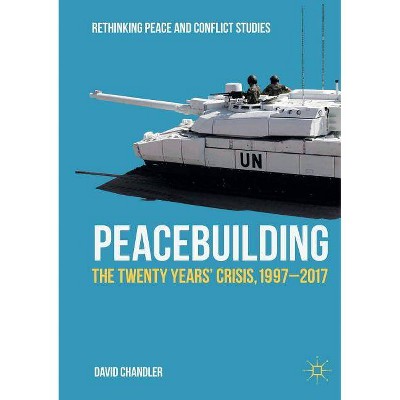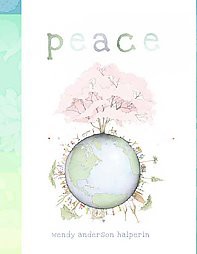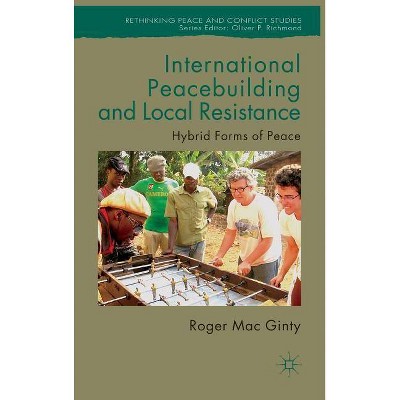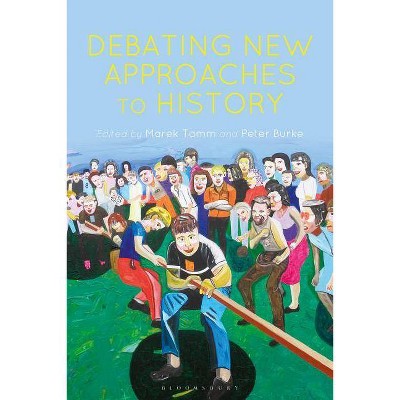Proscribing Peace - (New Approaches to Conflict Analysis) by Sophie Haspeslagh (Hardcover)
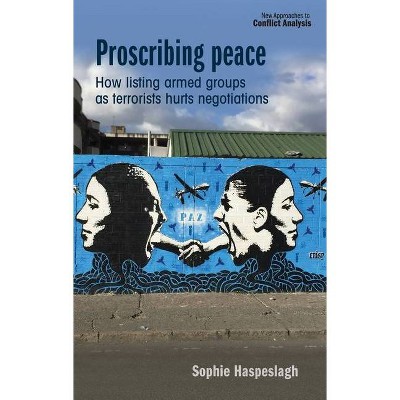
Similar Products
Products of same category from the store
AllProduct info
<p/><br></br><p><b> About the Book </b></p></br></br><i>Proscribing peace</i> shows how the listing of armed groups as terrorists has made pre-negotiations harder and more prolonged. Drawing on fieldwork in Colombia during the negotiation with the FARC, Sophie Haspeslagh introduces the concept of 'linguistic ceasefire' which becomes a central pre-condition for the initiation of a peace process.<p/><br></br><p><b> Book Synopsis </b></p></br></br><i>Proscribing peace</i> offers a systematic examination of the impact of proscription on peace negotiations. With rare access to actors during the Colombian negotiations with the Revolutionary Armed Forces of Colombia People's Army (FARC), Sophie Haspeslagh shows how proscription makes negotiations harder and more prolonged. By introducing the concept of 'linguistic ceasefire', Haspeslagh adds to our understanding of the timing and sequencing of peace processes in the context of proscription. Linguistic ceasefire has three main components: first, recognise the conflict; second, discard the 'terrorist' label, and third, uncouple the act and the actor. These measures remove the symbolic impact of proscription, even where de-listing is not possible ahead of negotiations. With relevance for more than half of the conflicts around the world in which an armed group is listed as a terrorist organisation, 'linguistic ceasefire' helps to explain why certain conflicts remain stuck in the 'terrorist' framing, while others emerge from it. International proscription regimes criminalise both the actor and the act of terrorism. <i>Proscribing peace</i> calls for an end to the amalgamation between acts and actors. By focussing on the acts instead, Haspeslagh argues, international policy would be better able to consider the violent actions both of armed groups and those of the state. By separating the act and the actor, change - and thus peace - become possible.<p/><br></br><p><b> From the Back Cover </b></p></br></br>'An exciting story and a penetrating analysis.' I. William Zartman, Johns Hopkins University 'Not talking to "terrorists" is fine - until you have to. This is a hard lesson learned by many governments who have had to negotiate with armed actors they have spent years demonising. Hapeslagh's excellent book gets to the heart of the matter and provides guidance to governments on how to get around this problem.' Roger Mac Ginty, Durham University 'A really important read for social scientists and peace practitioners.' Jenny Pearce, Latin America and Caribbean Centre, London School of Economics 'A compelling argument for a more rational approach to proscription in the context of peace talks, and essential reading as we approach the 20th anniversary of 9/11.' Jonathan Powell, CEO and Founder, Inter Mediate <i> Proscribing peace</i> offers a systematic examination of the impact of proscription on peace negotiations. With rare access to actors during the Colombian negotiations with the Revolutionary Armed Forces of Colombia People's Army (FARC), Sophie Haspeslagh shows how proscription makes negotiations harder and more prolonged. By introducing the concept of 'linguistic ceasefire', Haspeslagh adds to our understanding of the timing and sequencing of peace processes in the context of proscription. Linguistic ceasefire has three main components: first, recognise the conflict; second, discard the 'terrorist' label, and third, uncouple the act and the actor. These measures remove the symbolic impact of proscription, even where de-listing is not possible ahead of negotiations. With relevance for more than half of the conflicts around the world in which an armed group is listed as a terrorist organisation, 'linguistic ceasefire' helps to explain why certain conflicts remain stuck in the 'terrorist' framing, while others emerge from it. International proscription regimes criminalise both the actor and the act of terrorism. <i>Proscribing peace</i> calls for an end to the amalgamation between acts and actors. By focussing on the acts instead, Haspeslagh argues, international policy would be better able to consider the violent actions both of armed groups and those of the state. By separating the act and the actor, change - and thus peace - become possible.<p/><br></br><p><b> Review Quotes </b></p></br></br><br>'This book will enter into the top row of inside stories on the Colombian FARC negotiations. Her sources were deep in the FARC, where no one goes, as well as the state. It will enter the academic literature on International Relations concepts, notably the matter of ripeness, to confirm how the process works in reality and how reality can add refinements to the concept, and how the strategy of proscription affects behaviour and outcomes. An exciting story and a penetrating analysis.' I. William Zartman, Jacob Blaustein Distinguished Professor, Johns Hopkins University 'Not talking to "terrorists" is fine - until you have to. This is a hard lesson learned by many governments who have had to negotiate with armed actors they have spent years demonising. Sophie Hapeslagh's excellent book gets to the heart of the matter and provides guidance to governments on how to get around this problem. Her original notion of a "linguistic ceasefire" offers a way to move conflicts from the blame game to negotiations. Based on extensive fieldwork, and detailed knowledge of the Colombian peace process, she shows how the conflict temperature can be lowered to allow productive negotiations to take place. The book is highly recommended.' Roger Mac Ginty, Durham University 'This important and detailed study is vital reading for the evidence and arguments to explore the impact the labelling of armed actors as 'terrorists' has had on the possibilities for peace. International proscription, used by national actors to support their own political and armed goals, holds the possibility of peace back in ways explored in great detail through the Colombian case study. A really important read for social scientists and peace practitioners, based on extensive original material. It calls for a 'linguistic ceasefire' as a vital step towards peace negotiations, due to the impact the label has on the armed actors.' Jenny Pearce, Latin America and Caribbean Centre, London School of Economics 'The significance of this deeply researched work extends beyond the Colombia negotiations with the FARC. Negotiations in the age of proscription is a key challenge of modern conflict. Millions of people now live in seemingly endless wars where governments are fighting militant groups deemed too extreme for dialogue. The path to peace - already complex and difficult - now has to make its way round legal obstacles that, while well-intentioned, do more to prolong wars than they do to crush terror. Haspeslagh does an excellent and nuanced job of showing the damage that can result. A compelling argument for a more rational approach to proscription in the context of peace talks, and essential reading as we approach the 20th anniversary of 9/11.' Jonathan Powell, CEO and Founder, Inter Mediate 'Sophie Haspeslagh's new book, <i>Proscribing peace</i>, is greatly to be welcomed. The topic of 'talking to terrorists' has been much discussed, but here is a thorough in-depth analysis, not only of what this implies in relation to one careful case study, but also of the deeper general issue of current international proscriptions and their shortcomings. The author's original - and very helpful - contribution is the idea of combining what she terms a linguistic ceasefire and political landing strip to end vilification and focus on a shift to the political/ethical issues that underlie the conflict. In addition, she offers a lucid and reliable overall account of current thinking about 'ripeness' for pre-negotiations as a conceptual frame for her argument.' Oliver Ramsbotham, University of Bradford<br><p/><br></br><p><b> About the Author </b></p></br></br>Sophie Haspeslagh is Assistant Professor of Political Science at the American University in Cairo
Price History
Price Archive shows prices from various stores, lets you see history and find the cheapest. There is no actual sale on the website. For all support, inquiry and suggestion messages communication@pricearchive.us
